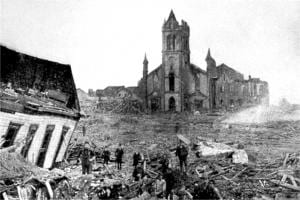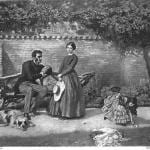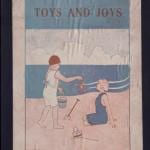 One hundred and twenty years ago this week, Galveston was wiped clean by the ocean. Atlantis was made real as a great city was broken so badly she never recovered her former glory. As many as ten thousand people were swept away in a hurricane. One acquaintance, over 101 this year, recalls his father and grandfather talking of those times. Before the floods, the secular power was in Galveston, Houston was nothing, but the ocean sea broke Galveston. The boosters and babbittry kept trying to make Galveston happen, but to this day what was promised back then was greater than what is.
One hundred and twenty years ago this week, Galveston was wiped clean by the ocean. Atlantis was made real as a great city was broken so badly she never recovered her former glory. As many as ten thousand people were swept away in a hurricane. One acquaintance, over 101 this year, recalls his father and grandfather talking of those times. Before the floods, the secular power was in Galveston, Houston was nothing, but the ocean sea broke Galveston. The boosters and babbittry kept trying to make Galveston happen, but to this day what was promised back then was greater than what is.
Galveston is a city of many sorrows.
Sometimes we are so sad that any other feeling was drowned out. A good person, a very strong person, will keep moving forward. Duty will be done. Complaints, which would not help in any case, are kept to a minimum. We get the truth: life is hard and then you die. Our hope is glory, but glory is fleeting just now, except in God. When enough goes wrong, then we can only hope to escape, even if hope seems faint.
Sometimes even a hero faces defeat so great that something good will cause the hero to feel the pain and sorrow again of his many hurts. The troubles seem like the secondary storms that follow a great hurricane. The rain reminds us of the great rain, the smaller trouble of the greater, and we are made sad out of proportion to present sorrows. Homer knew the troubles of the sea and of men. This wise man gives us a lesson on what to do.
Odysseus was a man difficult to beat. When life said “no way,” Odysseus would find a way. Doom after doom fell on his head, his household, his friends, and his allies. He went to war, but had the doom of winning after winning no longer mattered. The defeated in such a fight can glory in the “nobility” of their lost cause. They have ceased to be responsible, but the victors of a hollow victory gain the little, yet all the responsibility. They are in charge as they have sought to be, but only over a ruined city with a journey still ahead to a far away home. Odysseus has many adventures on the sea. The sea god keeps him from home, torments him, strips him of everything. The hero is broken, crying bitter tears, and when he finally escapes is asked to tell his story:
But you have a mind to draw out of me My pain and sorrow, and make me feel it again. [15] Where should I begin, where end my story? Heaven has sent me many tribulations. I will tell you my name first, so that you, too, Will know who I am, and when I escape The day of my doom, I will always be [20] Your friend and host, though my home is far.*
The hero says his name: he endures. The hero knows who he is and wishes his friends to know. If better days come, he will repay his friends. He is ready to host a party, though parties seem far away. God help us, but that is a good goal! Odysseus can no longer return in any real sense as the “winner” of the Trojan War, but he can return home. He can rebuild a life.
This is a Galveston spirit!
Galveston lives. Galveston keeps growing, against all odds, reinventing herself. She keeps saying her name, telling her story, hoping to thrive against the sea of many troubles. She is heroic that way and so Hope and I go often to visit. We are refreshed by the very cussedness of a city that refuses to move. The city is 0-5 against the sea, but the city endures.
No.
We endure, because the Eternal knows us. He loves us. He will spend eternity with us if we only will. Are you sad?
Say your name. Look forward to hosting a party. The ocean of troubles is mighty, but the Day is coming when the sea will give up her dead, there will be no more oceans, only the great City of God.
—————————
*Homer; Lombardo, Stanley; Murnaghan, Sheila. Odyssey (Translated & Annotated) Book IX, 15-20. (p. 125). Hackett Publishing. Kindle Edition.
















